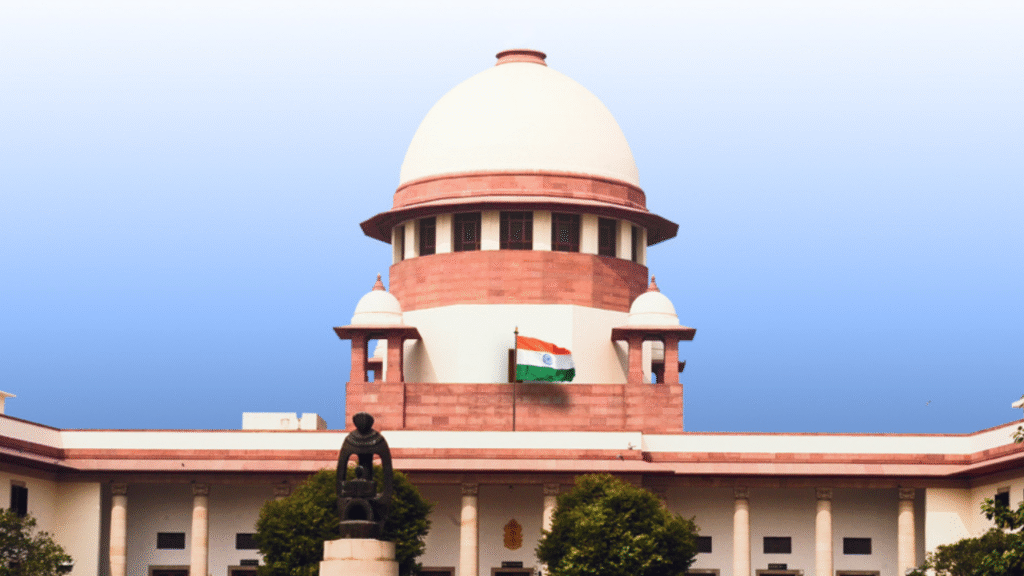Motor Vehicles Act, 1988 – Sections 147, 163A, 166 – Personal Accident Cover – Contractual Liability vs. Statutory Liability – Pleadings and Proof.
Core Question: The central question in this appeal was whether the family of the vehicle owner’s brother, who died in an accident while driving the car, is entitled to claim compensation under the Motor Vehicles Act, 1988.
Background: The deceased, brother of the vehicle owner, was driving the car when its right rear tyre burst, causing the vehicle to topple and leading to his death from a head injury. The owner admitted the accident and asserted the driver had a valid driving licence to claim coverage under the comprehensive insurance policy. The claimants, comprising the widow, minor children, and parents of the deceased, approached the Tribunal.
Tribunal’s Decision: The Tribunal granted compensation of Rs. 25,82,000/-, including amounts for income, transportation, loss of consortium, and funeral expenses. It found that the vehicle was covered by a comprehensive policy wherein a premium for personal accident to owner-cum-driver was paid.
High Court’s Decision: The insurance company appealed, primarily alleging driver’s negligence and arguing that the driver, stepping into the owner’s shoes, was the tortfeasor. The High Court, however, found no case for imposing statutory liability. Upon reviewing the policy, it determined that the comprehensive policy with additional premium covered liability to the extent of Rs. 2,00,000/- only for injury/death caused to the owner/driver, thus reducing the compensation to that amount.
Supreme Court’s Analysis:
The Supreme Court noted that the insurance policy itself and the written statement of the insurance company were not produced in the records of the Special Leave Petition, making it unclear if the contention of limited liability was taken before the Tribunal.
The Court reviewed several precedents (e.g., Oriental Insurance Co. Ltd. v. Rajni Devi, Oriental Insurance Co. Ltd. v. Jhuma Saha, Dhanraj v. New India Assurance Co. Ltd. & Anr., Ramkhiladi v United India Insurance Co.) that primarily dealt with statutory liability under Section 147 or claims under Section 163A of the MV Act, where the owner/driver is generally not considered a third party for statutory coverage.
Crucially, the Court emphasized that the present claim was not based on statutory liability but on the contractual liability of a personal accident cover, which was admittedly taken.
The Court found that the contention of limited liability was neither taken before the Tribunal nor in the memorandum of appeal filed before the High Court by the insurance company. The grounds raised in the appeal primarily related to driver’s negligence and absence of a valid driving license, which were not pressed before the High Court.
While guidelines like the Indian Motor Tariffs (IMT) issued by the Tariff Advisory Committee regulate policy issuance, they cannot bind the insured unless specifically stated in the insurance policy itself. The Court highlighted that it was critical to determine if a specific Capital Sum Insured (CSI) per person was inserted in the policy and if such a contention was raised before the Tribunal.
The Court reiterated the principle that pleadings and proof by valid evidence are the “crux and core of any adjudicatory process,” and there can be no proof without specific pleadings. Since limited liability was not pleaded, the High Court erred in considering it.
Supreme Court’s Decision: The Supreme Court found no reason to sustain the High Court’s order. It set aside the High Court’s order and restored the order of the Tribunal, directing the payment of the original awarded amounts with 8% interest per annum within two months, deducting any amounts already paid.
The appeal was allowed.
Coram: K. Vinod Chandran, J. and Sudhanshu Dhulia, J.
(2025) 7 SCD 78 : 2025 INSC 896

